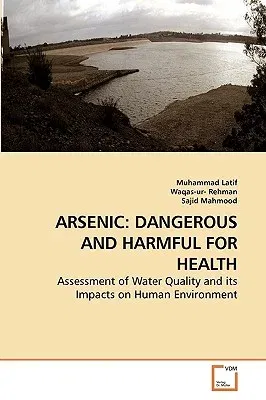Muhammad Latif
(Author)Arsenic: Dangerous and Harmful for HealthPaperback, 23 April 2010

Qty
1
Turbo
Ships in 2 - 3 days
In Stock
Free Delivery
Cash on Delivery
15 Days
Free Returns
Secure Checkout
Print Length
104 pages
Language
English
Publisher
VDM Verlag
Date Published
23 Apr 2010
ISBN-10
3639251334
ISBN-13
9783639251333
Description
Product Details
Book Format:
Paperback
Country of Origin:
US
Date Published:
23 April 2010
Dimensions:
22.86 x
15.24 x
0.64 cm
ISBN-10:
3639251334
ISBN-13:
9783639251333
Language:
English
Location:
Saarbrucken
Pages:
104
Publisher:
Weight:
163.29 gm

